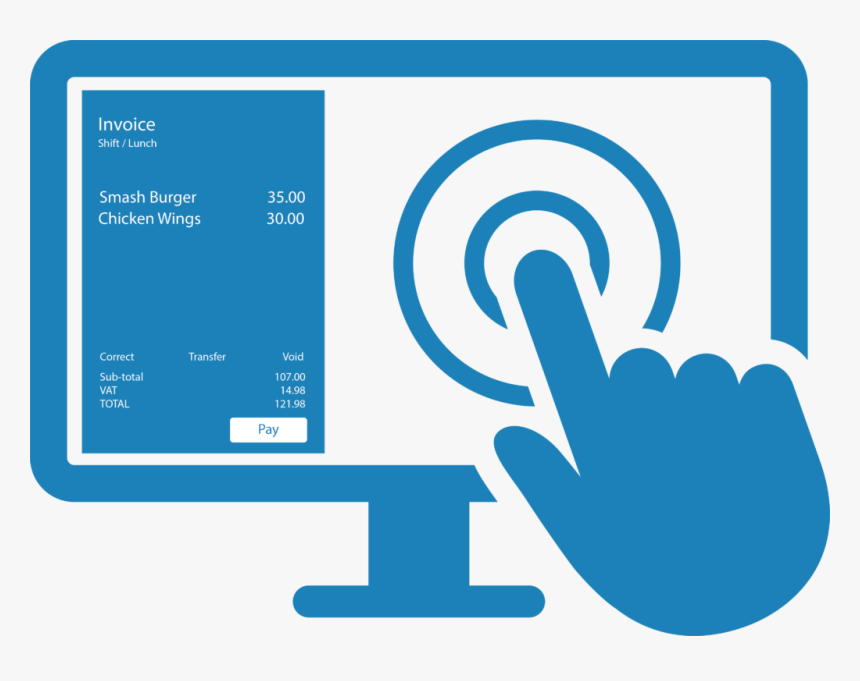<p>POS is a term widely-used which is short for “Point of Sale”. POS refers to the place and time at which a transaction is processed between a customer paying a certain amount of money in exchange for a product or a service. POS is a very popular term in F&B and retail industries where the repeated purchase rate and number of daily transactions are high, and that is exactly why they were the first sectors to adopt the concept of POS systems. A POS system is the system responsible for processing and recording all the transactions between a company and its customers. Some retailers and marketers have adopted the term POP “Point of purchase” instead of POS, but recently business leaders are starting to migrate to the concept of point of service as these systems do not only handle sales record and check-outs, they now have functions for supplies purchasing, loyalty schemes, inventory management, reporting and more. In order to comprehend the variations in naming and why someone may make a fuss about a name, you need to understand more about the history of POS.</p><p><br></p><p>POS as a concept –as we have previously stated- is related to the place where the consumer checks-out and pay his receipt, and this basic function was formerly-held by cash registers. Cash registers were the semi-automatic system used to process the calculation of the check-out process and confirm the transaction, but the process of saving the sales records on paper was not as efficient and that is why the need for POS systems became clear. POS systems automated the process of checking out especially with the appearance of new technologies and complementary hardware as barcode-readers, touch screens, local servers, thermal printers and more. All of these parts have formulated a much smoother, more efficient and user-friendly operations. Marketers have changed the naming of point of sale to point of purchase, to shift the perspective from that of a business to that of a customer. Later on, the need of supervising complementary operations of a branch or a business emerged, like inventory management, tracing orders’ availability, preparation cycle, exerting detailed reports or linking the branch with the central office or central kitchen for providing a much more efficient operational cycle. From this need the concept POS changed from a mere point of sales, to being a point of service, which serves the sales outlet as a whole and manages all of its sales and other complementary operations. But with the high overhead cost for local servers and the need to instantly oversee all of your business’s operations for all branches, the revolutionary technology of cloud solutions were adopted in POS systems. There is no superiority for cloud over local-server operations nor the other way around as each solution solves a different problem better than the other and it depends on the business needs, but as a business owner, do I really need to pay for a POS and adopt one instead of a cash register?</p><p><br></p><p>The answer is definitely, yes. Firstly, POS systems save time and effort that instead of gathering pieces of paper from every branch and then enlist them all under one registry then analyze the data and compare them to the former period or your own forecast; this is a headache, relieved by POS systems. Secondly, POS systems are your gatekeepers as they minimize monkey-business, save the sales record to avoid frauds and reduce the possibility of cash-register picking incidents. Thirdly, POS systems recently are offering a simple alternative for inventory management and other complementary operational efforts or software solutions to be all handled through the same platform. We can keep listing more and more benefits that you can get by adopting a POS, but these three are the most important and from them we can derive the features that you need to keep in mind when selecting your POS.</p><p><br></p><p>Many companies are providing a wide range of POS solutions that meet various business needs. Your POS has to provide you with the minimal functionality of speed and smoothness of operations, the security to avoid robbery and the complementary features that allows you to oversee and run your operations more efficiently. Choosing a POS is a tough journey full of options and alternatives so make sure to pick the one that meets all of your business needs.</p><p data-f-id="pbf" style="text-align: center; font-size: 14px; margin-top: 30px; opacity: 0.65; font-family: sans-serif;">Powered by <a href="https://www.froala.com/wysiwyg-editor?pb=1" title="Froala Editor">Froala Editor</a></p>
